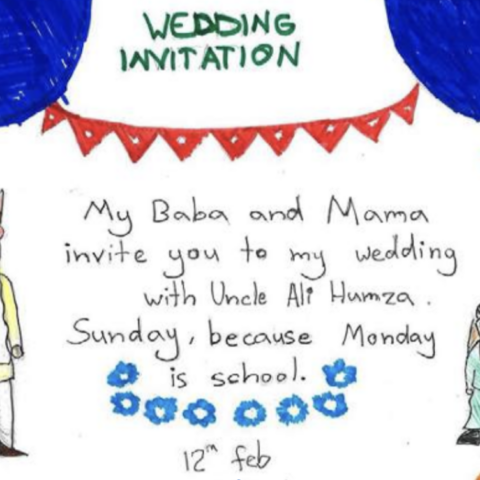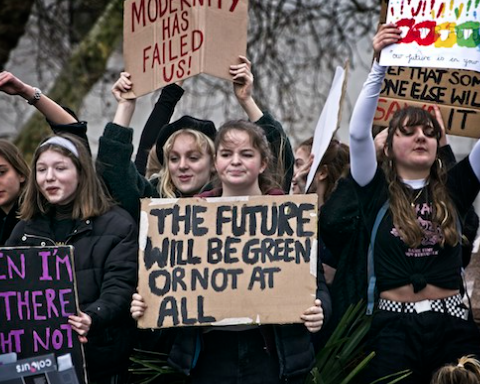By: Virginia McNally
 The government of Zimbabwe has been driving on spare tires and an empty tank since 2009. After a violent and fraudulent 2008 presidential election, the Global Political Agreement (GPA) was put in place not only to prevent a complete breakdown, but also to elevate the country to a better state by 2013. The drivers of the government, President Robert Mugabe and Prime Minister Morgan Tsvangirai, have failed to agree upon the necessary repairs, and their parties have stalled and disagreed at every possible bend in the road.
The government of Zimbabwe has been driving on spare tires and an empty tank since 2009. After a violent and fraudulent 2008 presidential election, the Global Political Agreement (GPA) was put in place not only to prevent a complete breakdown, but also to elevate the country to a better state by 2013. The drivers of the government, President Robert Mugabe and Prime Minister Morgan Tsvangirai, have failed to agree upon the necessary repairs, and their parties have stalled and disagreed at every possible bend in the road.
In order to function, a democratic country needs a strong constitution, regular elections that hold up to international standards, a fair and impartial judiciary, and a host of other parts that safeguard and guarantee the rights of its citizens. At the outset, a constitution usually dictates how these components are assembled and how they work together. Without a constitution, a democratic country is a collection of parts that do not work well together, or even worse, work to harm citizens instead of helping them. In fact, it starts to look nothing like a democracy at all.
This is what is happening in Zimbabwe. It has become an autocracy. The chief task of the members to the GPA was to draft a new constitution for Zimbabwe. The 1979 constitution has been amended within an inch of its life, and needed to be updated for real change to come to the structure of the Zimbabwean government. Many blame the structure of the GPA for the lack of progress and cite as evidence the near impossibility of mobilization when Morgan Tsvangirai was beaten and almost killed by Robert Mugabe’s henchmen in 2008. These are certainly difficult circumstances for consensus, but both parties have forgotten something crucial.
The real problem with the vehicle of government in Zimbabwe is not the set of spare tires it has been driving on, but that it is missing a key part. Since 2000 the people of Zimbabwe have been left out of the vehicle of government. There have been moments in the last twelve years when Zimbabweans have been included, but for the most part they have been left in the shop as their country heads for the junk yard.
In 2000 it became clear that the constitution needed to be updated, and that widespread unrest could not be resolved without addressing the calls for reform from Zimbabweans. In 1997 a collection of NGO’s came together to form the National Constitutional Assembly (NCA), and in 1999 the Mugabe government responded with the Constitutional Commission (CC) to take control of the narrative. The CC wrote a draft constitution and called for a referendum in 2000. This draft did not reflect the opinions expressed by Zimbabweans in the extensive outreach sessions conducted by both the CC and the NCA. The NCA campaigned for a “no” vote, and the Mugabe government campaigned for a “yes” vote. The 2000 constitutional referendum did not pass, and since then every election in Zimbabwe has been somewhat or blatantly fraudulent.
Out of the NCA came Morgan Tsvangirai’s party, the Movement for Democratic Change (MDC). Since that time, he has been associated with representing Zimbabweans in the face of violent tyranny. Until now. The draft constitution has been in process since 2009, and in mid-July a complete draft was circulated around Zimbabwe. Years of negotiations and millions of dollars were spent on the drafting process. Then, Mugabe’s party, the Zimbabwe African National Union (Patriotic Front), ZANU-PF, rejected it and submitted its own version. Despite the fact that representatives from ZANU-PF agreed on the first draft constitution, the party deemed it a dangerous alternative.
Of course, this move was to be expected from Mugabe’s party. They are a shrewd bunch. They have also come out asking for the Zimbabwe Constitution Special Committee (COPAC) to release its report on the first draft constitution. COPAC will not release the report, since it is not required to according to the GPA. ZANU-PF claims that the first draft constitution does not accurately represent the views of the people as expressed since 2009 in a limited outreach program, and they want to see the report in hopes that it mentions this issue.
While ZANU-PF is merely building another roadblock in the vehicle’s path, it is right about the neglect of Zimbabwean voices. The MDC has lost its way in three years of political bargaining. In a public opinion survey released by Freedom House last week, since 2010 “trust in MDC-T…dropped from 66% to 39%, while trust in ZANU-PF rose from 36% to 52%.”
Few expect ZANU-PF to be the great guardian of human rights and freedoms, but many held higher expectations for the MDC. While neither draft constitution included the voice of Zimbabweans, the first draft should have. These are the consequences of leaving citizens out of the equation, and these are a dangerous set of circumstances for the MDC as it heads into a by-election and a presidential election, which should all occur in the next year. Meanwhile, ZANU-PF has been handing out checks to small business owners as a part of the indigenization program. Since the MDC does not have the luxury of direct access to diamonds, it cannot do the same. But it can get back to its roots and reassure Zimbabweans that they are not forgotten. It will be easier to dismiss this report than respond to it, but dismissing it will lead to weak by-election and presidential election turnout, and the MDC will have failed as a party and as a force for democratic progress and freedom.

